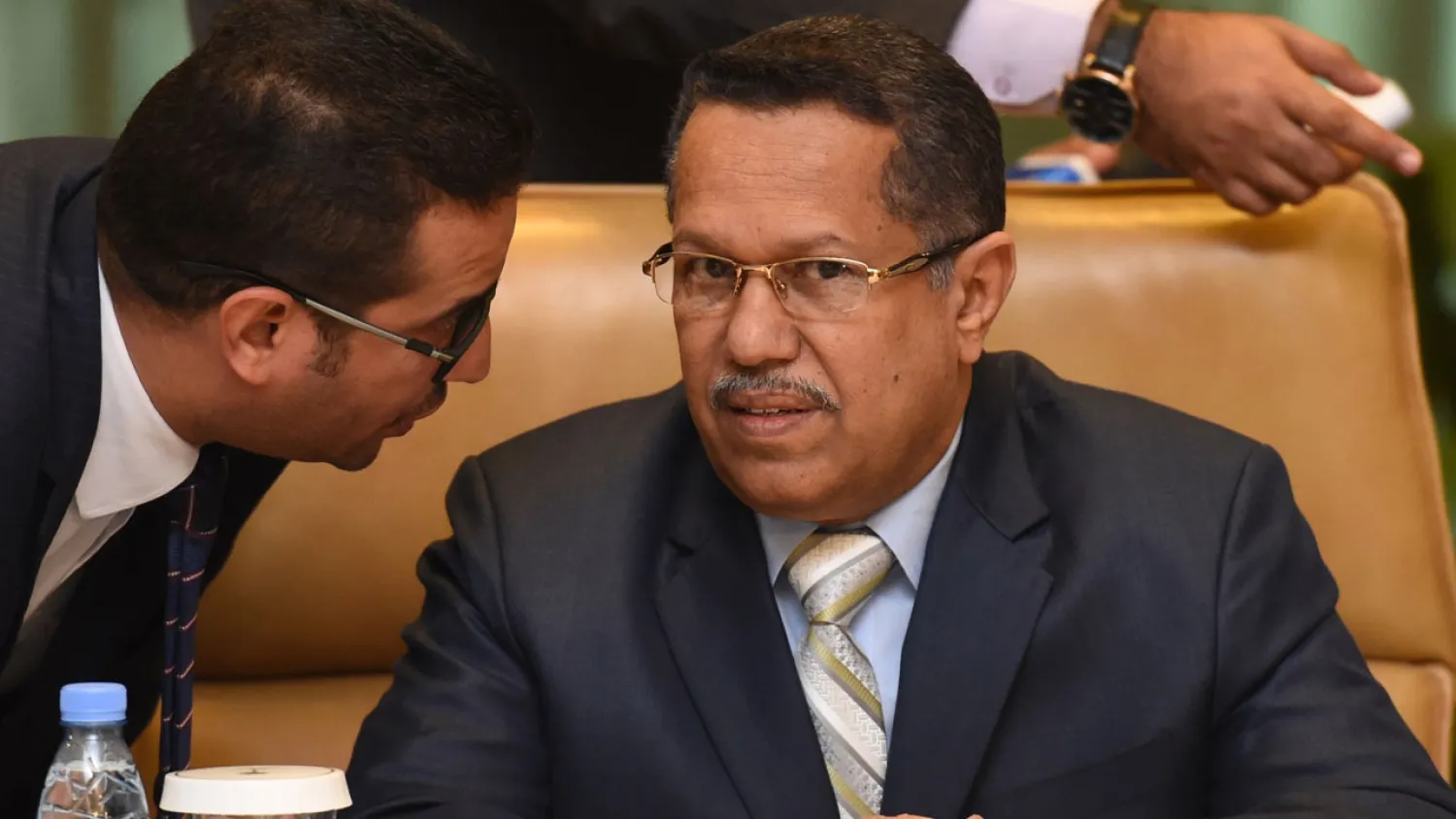The Yemeni government announced on Sunday its first budget since Houthis launched their coup more than three years ago, with expenses worth $3.8 billion, revenues estimated at around $2.6 billion, and a financial deficit of 33 percent.
Yemeni Prime Minister Ahmed Obeid bin Daghr said that the Parliament would hold a meeting next month in Aden to approve the budget and reorganize the legislative branch in the country.
Sunday’s budget mainly approved the salaries of military employees and civil servants of the liberated provinces, in addition to providing payments for the reconstruction of institutions.
Bin Daghr told members of his government during the cabinet session in Aden, that the announced budget would cover the salaries of military employees and civil servants of 12 provinces for the whole year, in addition to specific sectors in the Houthi-controlled areas, including the judiciary, the health sector, universities and the high electoral committees.
The prime minister said that the government would pay the salaries of other government sectors in Houthi-controlled areas, only if the rebels supply financial revenues to the Central Bank.
The budget was released a few days after Saudi Arabia's $2bn deposit to the Yemeni central bank.
Bin Daher thanked the Kingdom, its King, Crown Prince, government and people for the deposit, saying “it came in the right timing.”
Meanwhile, Riyadh will witness on Monday a ministerial meeting of the Coalition Supporting Legitimacy in Yemen, and the announcement of a comprehensive plan for humanitarian operations.
Foreign ministers of the coalition are expected to hold several meetings to tackle efforts to coordinate the delivery of humanitarian assistance to Yemen.
Egyptian Foreign Ministry spokesman Ahmed Abu Zeid said that Foreign Minister Sameh Shoukry would head to Riyadh on Monday to take part in the meeting.
He said the talks reflect the coalition's commitment to meeting the humanitarian needs of the Yemen’s people and mirror the Egyptian government and people's solidarity with Yemenis in times of need.









